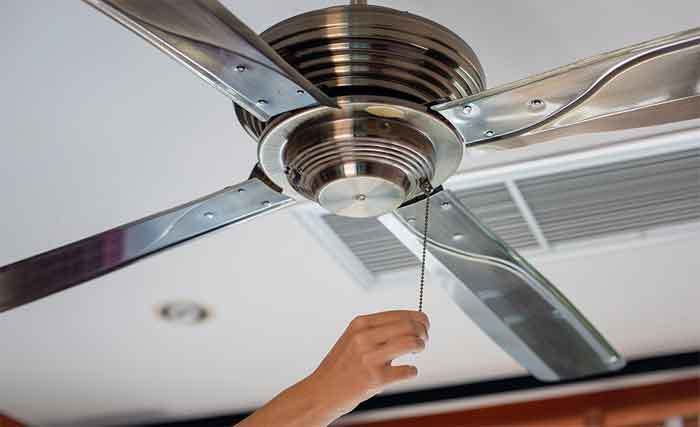Shooting Ear Protection: The Ultimate Guide
If you’re a shooting enthusiast, then you know that protecting your ears is of the utmost importance. Loud gunshots can cause significant damage to your hearing, and if you don’t take steps to protect yourself, you could end up with permanent hearing loss. In this guide, we will discuss the different types of shooting ear protection available and how they can benefit you. So whether you’re a beginner or a seasoned pro, make sure to protect your ears every time you go shooting!
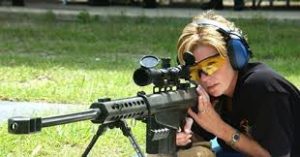
Why We Use Shooting Ear Protection While Shooting?
Ear protection is essential for shooting, whether you’re shooting recreationally or competitively. The noise of a gunshot can reach up to 170 decibels, depending on the gun’s caliber and the shooting environment and it is enough to cause permanent hearing damage. If you’re hunting or at the range without hearing protection, you risk developing significant and potentially irreversible hearing problems. Even if you’re only shooting occasionally, it’s important to use shooting ear protection to protect your ears from the noise of gunfire.
Main Devices of Ear Protection for Shooting
There are a variety of shooting ear protection options on the market, so it can be tricky 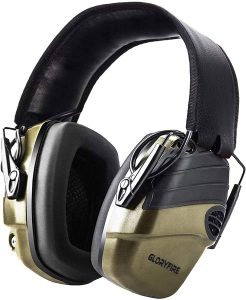
to decide which type is best for you. The most common types of shooting ear protection include earplugs and earmuffs.
Earplugs and earmuffs
Earplugs are small and fit inside the ear canal, while earmuffs cover the entire outside of the ears. Some people find that one type of shooting ear protection works better for them than the other, so it’s important to try both out before making a decision.
Both earplug and earmuff shooting hearing protectors have their pros and cons:
- Earplugs are more portable and discrete than muffs; they also provide a better seal if inserted correctly.
- Muffs can be worn with glasses and other headwear, and are less likely to fall out of the ear.
- Earplugs may not be as effective in very loud environments, while muffs can become uncomfortable after a long period of time.
- Earmuffs do not alter in size or shape when they are donned, unlike earplugs. As a result, they do not need to be custom fitted and you will know that they will provide the right level of protection to those who require it.
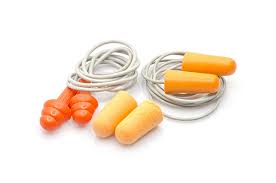
- In colder regions, earmuffs may also serve as a means of keeping your ears warm, allowing you to focus more on your shooting.
- The earmuffs don’t sit in the ear canal like earplugs do, so they offer less protection. Furthermore, if you use the earmuffs in a hot environment, they may get extremely uncomfortable and even cause an infection.
Ultimately, the best shooting ear protection is the type that you will wear every time you shoot. So try out a few different types of shooting hearing protectors to see what works best for you. And if you have any questions about shooting ear protection, don’t hesitate to ask your local hearing specialist.
Helmets
Some shooting enthusiasts also choose to use a helmet for shooting ear protection. Helmets cover various parts of the head, including the ears, and can provide hearing protection from both sound and debris. Helmets are typically made of durable materials that can protect against impact.
However, helmets do have some drawbacks:
- They can be heavy and cumbersome to wear.
- They may not fit well if you have a large head or wear glasses.
- They may not be as effective in very loud environments
Helmets are a good option for those who want additional protection beyond what earplugs or earmuffs offer. If you’re looking for complete coverage and don’t mind the extra weight, a shooting helmet may be the best option for you.
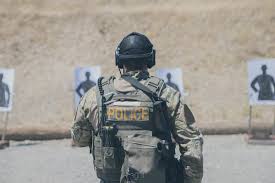
Remember to always use some form of shooting ear protection when shooting, whether it’s earplugs, earmuffs, or a shooting helmet. The noise of gunfire can cause significant hearing damage if you’re not properly protected. Talk to your local hearing specialist today about the best shooting ear protection for you.
Electronic Ear Protection
There are a few different types of electronic shooting ear protection available, including earplugs and earmuffs. Electronic shooting ear protectors work by amplifying ambient sounds while reducing the noise of gunfire. This allows you to still hear other people and important noises around you while protecting your ears from the sound of gunshots.
Electronic shooting ear protectors have a number of benefits:
- They are comfortable and lightweight.
- They are effective in both quiet and loud environments.
- They can be used with other forms of hearing protection for extra coverage.
Each type of ear protection has what is called a noise reduction rating (NRR) developed by the Environmental Protection Agency (EPA) (official webcite). Noise reduction ratings are a measure of how effective shooting ear protectors are at reducing the noise of gunfire. All shooting ear protectors, whether they are earplugs or earmuffs, have an NRR rating. It’s important to choose shooting hearing protectors that have a high NRR rating, as this will ensure that you are getting the best protection possible.
The higher the noise reduction rating, the more effective the shooting hearing protector will be at reducing gunshot noise. Most electronic shooting ear protectors have an NRR rating of 28 or higher, making them some of the most effective shooting hearing protectors available. Make sure to always choose shooting hearing protectors with a high noise reduction rating for maximum protection.
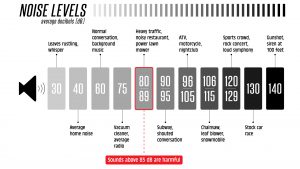
FAQs
Why do people shoot without ear protection?
There are a few different reasons why people may shoot without ear protection. Some people may not be aware of the dangers of shooting without hearing protection, while others may believe that shooting without ear protection doesn’t pose a risk to their hearing. Others may simply find shooting ear protectors uncomfortable or inconvenient.
Can you wear ear plugs at a shooting range?
Yes, you can wear ear plugs at a shooting range. In fact, wearing shooting ear protectors is highly recommended at shooting ranges to protect your hearing from the noise of gunfire. There are a variety of different types of ear plugs available, so be sure to choose the type that best suits your needs.
Can ears ring after gunshot?
Ears may ring after a gunshot for anywhere from a few minutes to a few hours. However, in most cases, ears will stop ringing within 24 hours. If you experience continued ringing after 24 hours or if it is accompanied by other symptoms, such as pain or dizziness, be sure to see a doctor.
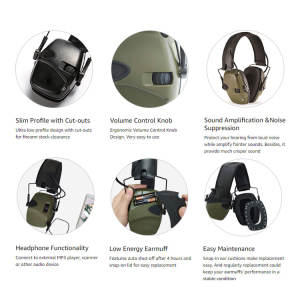
How many dB is a 9mm gunshot?
A nine millimeter gunshot is around 165 dB. This is a very loud noise and can cause long-term damage to your hearing if you are not wearing shooting ear protectors.
Can you shoot a 9mm without ear protection?
It is not recommended. Shooting without hearing protection can cause long-term damage to your hearing and may result in permanent hearing loss. It is always important to use shooting ear protectors when shooting, whether it’s earplugs, earmuffs, or a shooting helmet.
Should I wear ear protection when hunting?
Yes, you should always wear shooting ear protectors when hunting. The noise of a gunshot can cause permanent hearing loss, so it’s important to take precautions to protect your ears.
Do soldiers wear ear protection?
Yes, soldiers wear shooting ear protectors when they are in combat. This is to protect their hearing from the noise of gunfire and explosions. Soldiers often use electronic shooting ear protectors, which allow them to still hear other people and important noises around them while protecting their ears from the sound of gunshots.
In Conclusion
Gunshot noise can cause significant damage to your hearing, and it’s important to take steps to protect yourself. There are a variety of shooting ear protection options available, so make sure to choose the ones that best suit your needs. With the right gear, you can enjoy your shooting hobby while keeping your ears safe!


